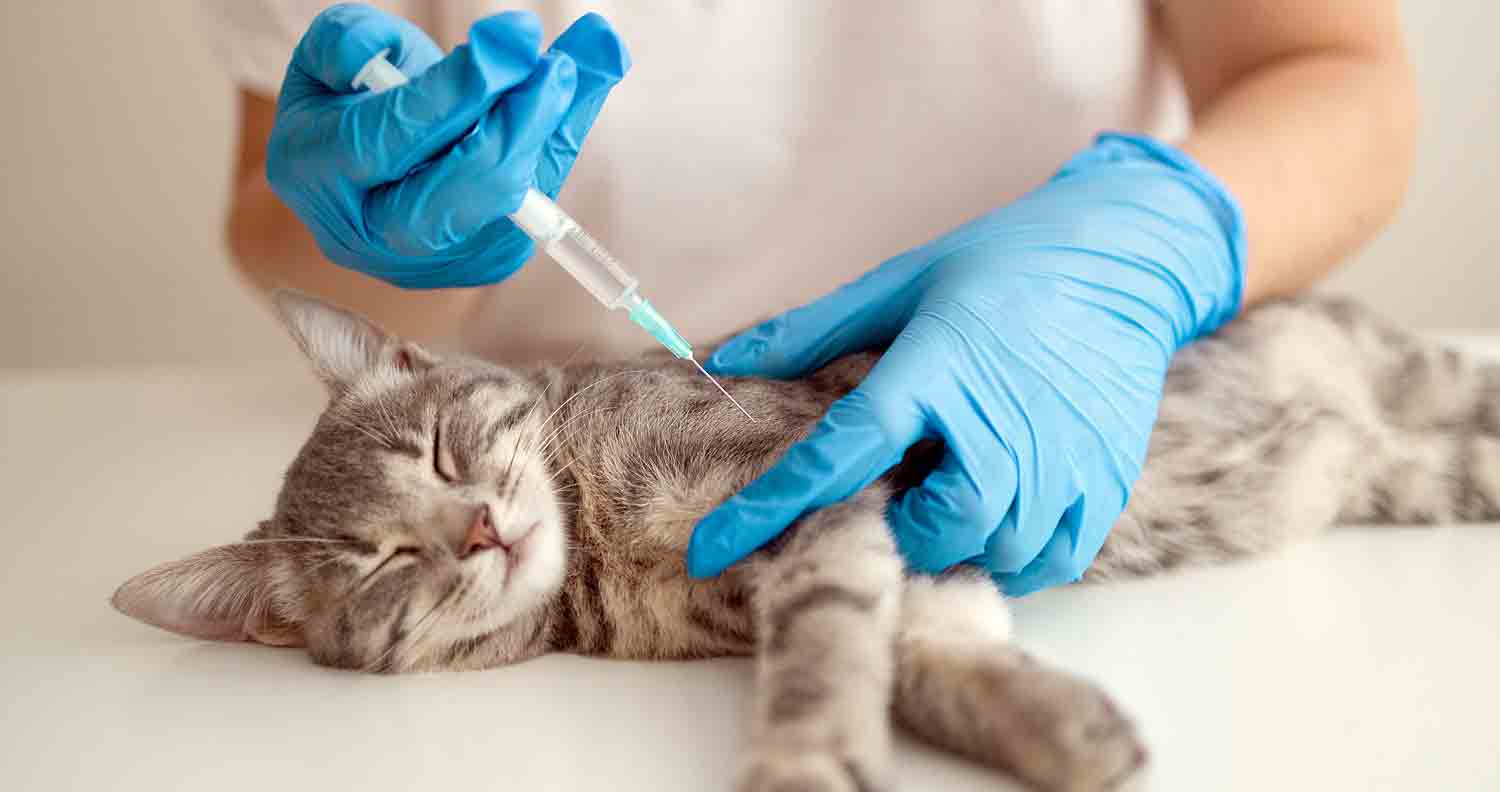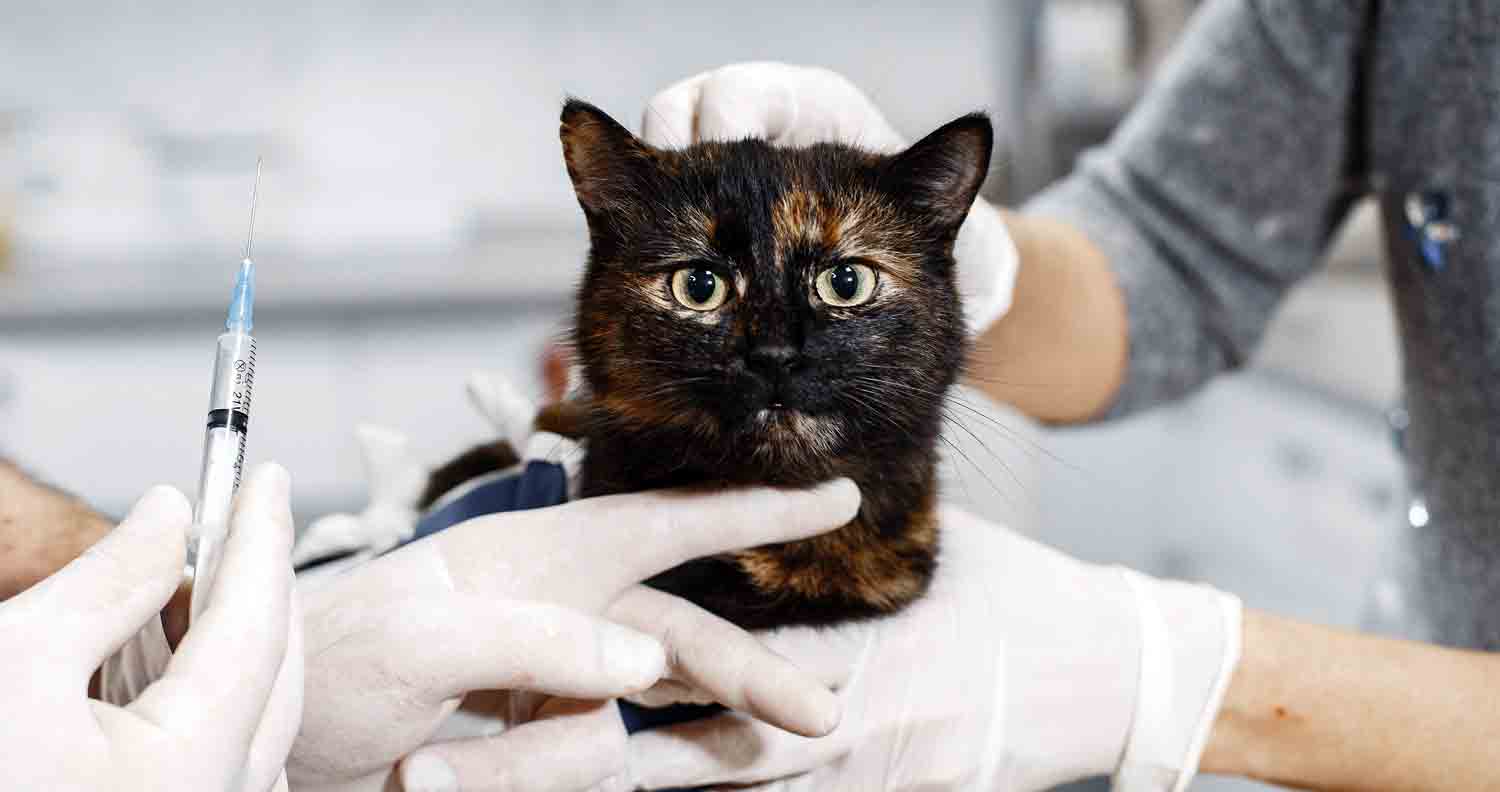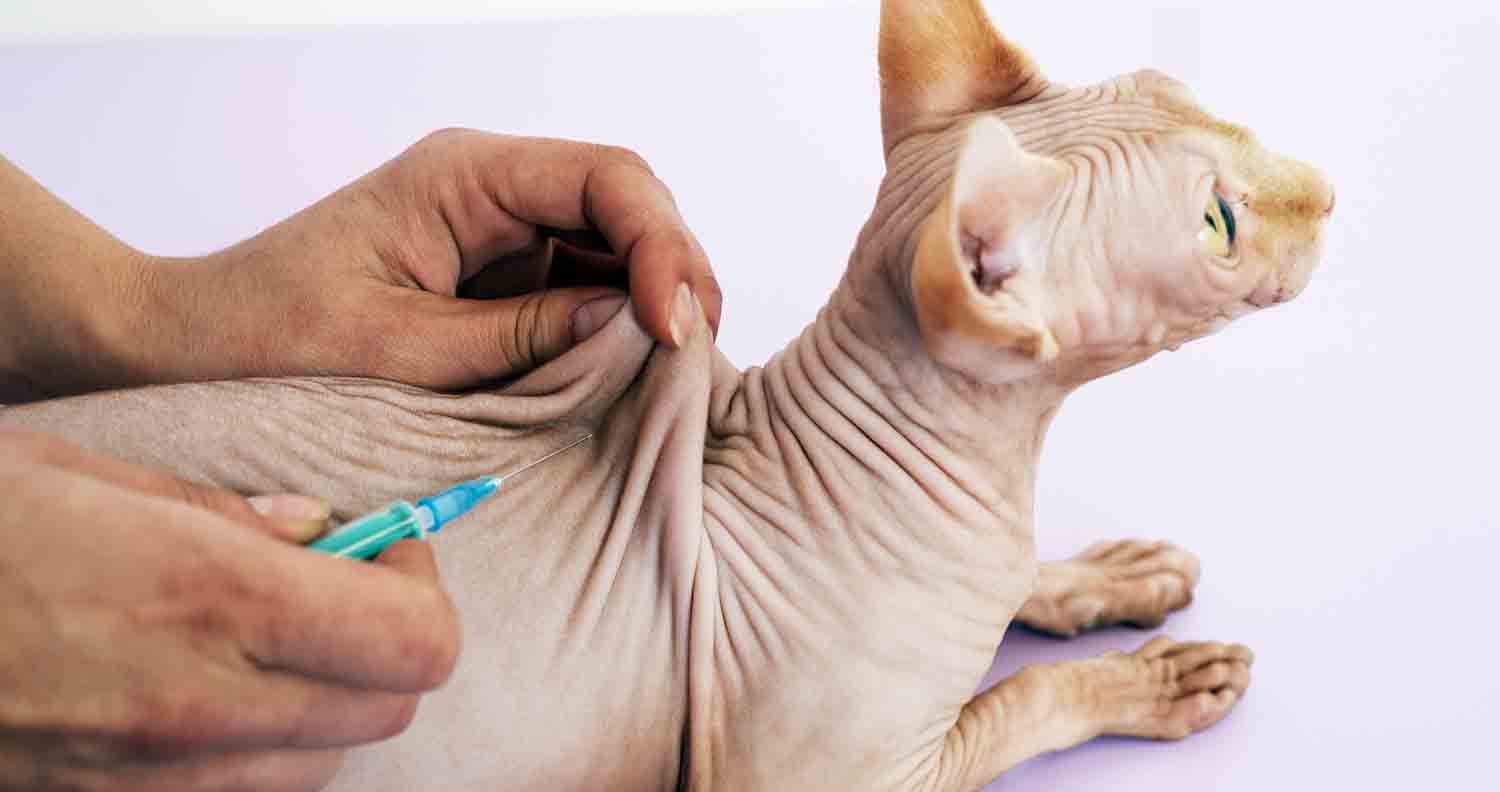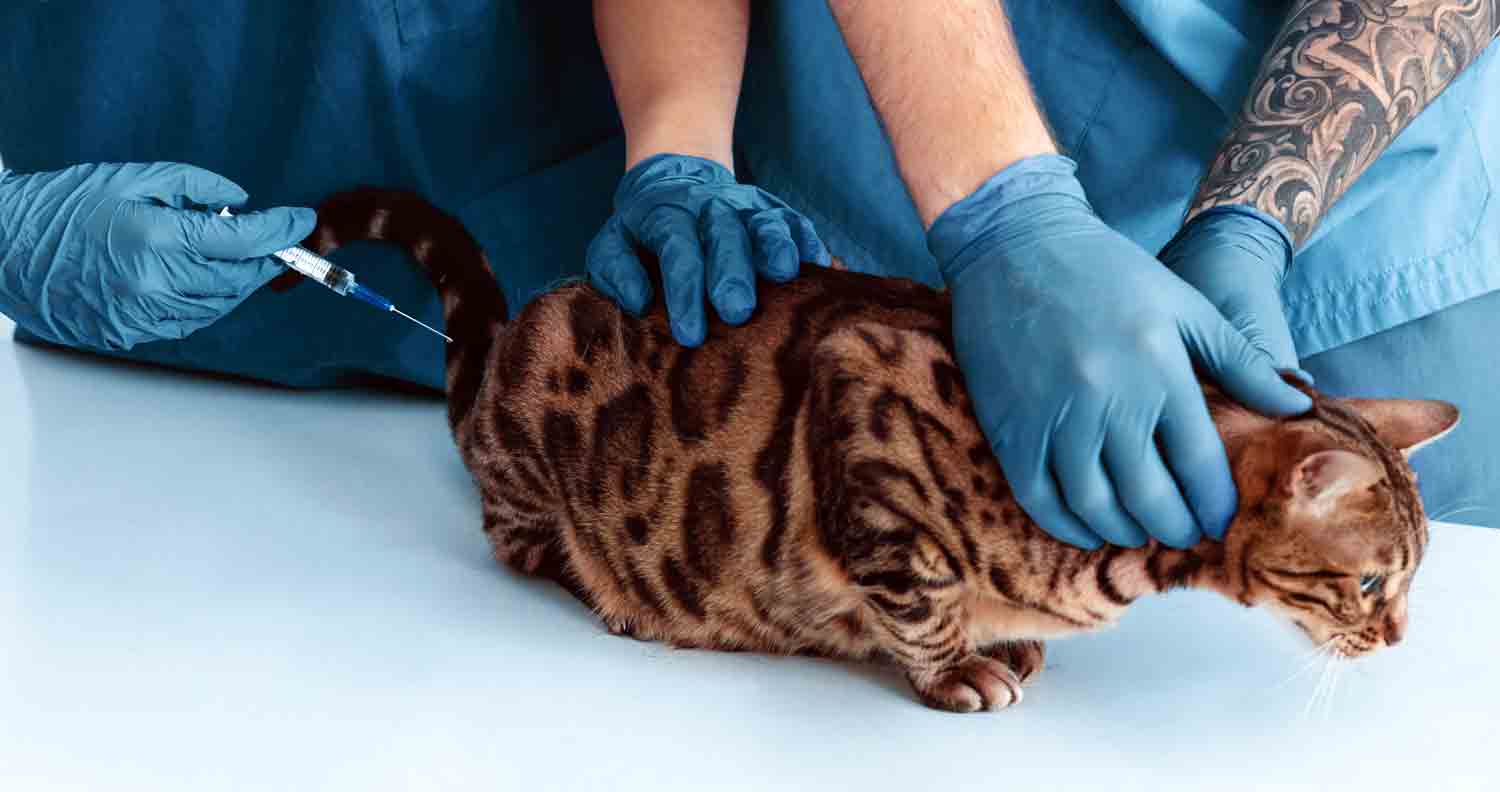An Owner’s Guide to Cat Vaccinations
Share:

Did you just adopt a pet cat and now are now looking up all the needs to help keep your cat happy and healthy? The best way to make sure that your cat is healthy is to make sure that they are vaccinated for any issues that they may have. This is all about prevention!
The first time you take your cat to the vet, they will give your cat any vaccination that they need. There are many viruses that can cause your cat to be sick, and there are vaccines that will protect your cat from parasites, bacterial infection, and contagious diseases.
Just like dog vaccinations, your veterinarian will administer the best combination of vaccines that will allow your cat to stay healthy and happy for many years.
What shots do Cats Need?
These are some of the viruses that a kitten will need and an adult cat will need. We will also discuss what these viruses do and why you need to vaccinate your cat for these diseases.
Cats who go to the groomer or stay at pet kennels will also need to be vaccinated to prevent infection that spreads quickly in spaces where there are lots of animals.
Most veterinarians follow the guidelines put out by The American Association of Feline Practitioners (AAFP). The AAFP recommends that all cats receive the following core vaccines:
Panleukopenia
Panleukopenia is similar to the distemper virus seen in dogs. It can cause fever, sneezing, lethargy, loss of appetite, and discharge from your cat's eyes and nose. This virus can easily affect your kitten and could potentially be deadly. By vaccinating your cat for this disease, you are helping keep them from catching this disease.
Feline Herpes Virus
Feline herpes is known as feline viral rhinotracheitis. This cat disease causes upper respiratory signs in your cats, such as a watery nose and eyes. These signs can cause your cat to develop more severe issues and airway problems, causing your cat to have issues breathing. Feline Herpe svirus can be easily tested for and managed but would be a lifelong problem that you would have to constantly treat when there were flair-ups.

Get 30% off and FREE shipping on cat food!
U.S.A. only
To Find out why we recommend chewy.com, click here
Calicivirus
Calicivirus is a highly contagious virus that is responsible for many upper respiratory diseases seen in cats. Not only does this disease cause sneezing and discharge from the eyes and nose, but it also causes there to be lesions in your cat's mouth. Some cats with these issues do not want to eat or drink due to the pain these oral lesions are causing. In certain cases, the calicivirus can be deadly.
Rabies Vaccine
A rabies vaccine is required by law that your cat has at least every 1 to 3 years. The frequency of these vaccines all depends on your local laws. Rabies virus is a deadly virus that is transmitted to a cat via saliva bite wounds from infected animals. This is one reason why it is best that your cat stays strictly indoors. Fighting with infected wildlife can cause your cat to contract rabies. Unfortunately, there is currently no cure for rabies, and it is fatal.

How Often Does my Cat Need Vaccines?
The frequency of vaccinations for your cat will differ based on where you live and the age of your cat. Younger cats and kittens will need a series of vaccines more often than adult or older cats.
Vaccinating Kittens
Your kitten will need to be vaccinated starting at six weeks of age. They will need a booster vaccine every 3 to 4 weeks until they are four months old.
They will need their Rabies vaccine only once during this time, between 12 and 16 weeks. The exact age that your cat will get its rabies vaccine will depend on the local laws.
Before your kitten is six weeks of age, they will have antibodies that they got from their mother when they were nursing. These antibodies will help protect them from getting these common kitten viruses and will start to decrease around six weeks of age. This is why they will start to get vaccines at six weeks of age. These vaccines will help boost their immune system to keep them protected.
Vaccinating Adults
Once your cat becomes an adult, it will only need to receive vaccines once a year. The vaccines they will need each year depends on the local laws and the virus that are commonly found in your area.

FAQS
What is the 3 in 1 vaccine for cats?
A 3 in 1 vaccine for cats is one vaccine (FVRCP) that will protect your cat from panleukopenia, herpes, and calicivirus. These are the three most common pathogens that your cat could easily be exposed to. This keeps your cat from having to receive three different injections to keep them protected. This would also be a vaccine that your cat would need a booster of each year to keep them protected from all of these viruses.
What doses do cats need, and how much do they cost?
The vaccines that your cat needs depend on your cat's lifestyle. If your cat goes outside, they will need more vaccines than cats that spend all of their time inside. Outdoor cats are more susceptible to catching diseases from stray cats and wildlife.
Outdoor cats will need a 3 in 1 vaccine, Rabies vaccines, and Feline Leukemia Virus (FIV) vaccines. Feline leukemia is a very contagious virus that your cat can catch from stray cats that they fight outside. If you have more than one cat in your household, your cat will need more vaccines than houses that have just had one cat. If you adopt a new cat or kitten, make sure that the cat you currently have is up to date on all it's vaccines before you bring home a new cat.
How much do cat vaccinations cost?
The cost of vaccines for your cat will differ depending on where you live. There are low-cost vaccine clinics that are found in bigger cities a few times a year. These would help you save a little bit of money; however, these vaccine clinics are at inconvenient times for many people. Your veterinarian can give you an estimate of the cost of all needed vaccines for your cat. You should look at spending about $100 to $300+ on these visits. This would all depend on what vaccines and testing your veterinarian recommends for your cat.
What vaccines do indoor cats need yearly?
Indoor cats do not need to receive as many vaccines as cats that got outside. Indoor cats will need to have a rabies vaccine even though they do not go outside and have a very slim chance of ever coming into contact with a rabid animal. This is a state or local law that you must follow, or you could potentially receive a fine.
The reason that indoor cats need vaccines is that rabies can be transmitted by a bat that could possibly fly into your house and bite your cat, or your cat could accidentally escape outside. Many indoor-only cats will not receive a vaccine for feline leukemia since they have no way to come in contact with any stray cats. Many people will still vaccinate their cats for this virus just in case they escape outside; they will be protected.

Does my indoor cat need to be vaccinated?
Just like cat flea prevention indoor cats do need to receive vaccines. When your cat is young, they will need an initial vaccine series to make sure that they start off with a healthy immune system and not catch any potentially deadly diseases. Your cat will need a rabies vaccine at 12 to 16 weeks of age. After the initial vaccine series, it is best to discuss with your veterinarian what vaccines your cat should get every year. Some vaccines will only need a booster vaccine every 2 to 3 years.
Are there any side effects from the cat vaccinations?
Yes, sometimes. Look out for the following symptoms that might indicate negative side effects from a cat vaccine: Fever, lethargy loss of appetite, vomiting, lameness, diarrhea and swelling around the injection site.
Final Thoughts on Cat Vaccinations
If you have just adopted a new cat, there are many different vaccines that they may need. These vaccines can all depend on your cat, the location you live in, and your local laws. When your cat is at its appointment, your veterinarian can discuss all the pros and cons of each vaccine. This will help you make a decision on what vaccine your cat needs each year or if they even need any vaccines at all. Vaccinations are a way to help keep your cat happy and healthy so they can live a long, disease-free life. If you haven't already done all this, Be wise, schedule in a visit to the vet. It really does reduce the risk of exposure to all the moggy nasties out there!

Get 30% off and FREE shipping on cat supplies!
U.S.A only
To Find out why we recommend chewy.com, click here
Affiliate disclosure : We Love Cats and Kittens is a participant in several affiliate programs including the Amazon Services LLC Associates Program, and the Chewy affiliate program. These are affiliate advertising programs designed to provide a means for sites to earn advertising fees by advertising and linking to products on their sites. If you click on links in our blog posts and articles we may be paid a commission.
Share:

